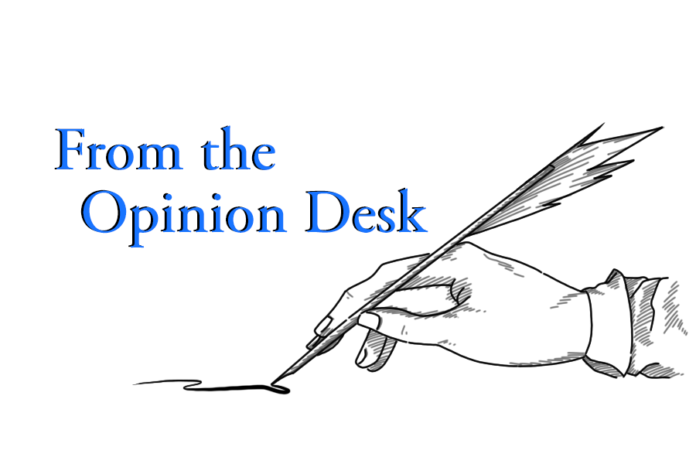Why we can’t afford to give water privileges to big agriculture
If you’ve taken the I-5 south from Sacramento and pulled over to get some Doritos or gas, odds are you’ve ended up in the backroads of one of the world’s most productive agricultural regions — the San Joaquin Valley — and stood in front of some infamous signs posted by agricultural stakeholders trying to justify their overuse of water.
“Is Growing Food Wasting Water?”
Less than two years ago former Governor Jerry Brown lifted the state of emergency prompted by the five-year drought. Most of us probably remember the dry riverbeds or the the residents painting their brown lawns green because of water restrictions while farmers flooded their fields.
The drought was so bad that many farmers had to extract water from California’s precious groundwater reserves to save their crops from completely drying out. According to a report by NPR, the farmers pumped out enough water to flood the entire state of Pennsylvania with a foot of water. Groundwater pumping over the past century has been so intense that it caused the San Joaquin Valley’s ground level to sink by 200 meters.
Some farmers, usually those within a corporate operation, have been able to sidestep sustainable water restrictions because they acquired a water right before 1914. Most of these large-scale farmers, unlike smaller ones, must comply with “use it or lose it” principles, under which they are incentivized to practice unsustainable water usage.
The agricultural sector already uses 40 percent of California’s water, while the rest of the state fights for scraps. And when farmers were met with resistance from the State Water Resources Control Board about their unsustainable use of water, the court sided with the agricultural powerhouses.
At what point do we say enough is enough?
The Sierra Nevada snowpack is California’s main source of water. During the winter, snow builds up on top of the mountains, melting during spring and filling our rivers and valleys with precious water. Unfortunately, climate change decreases our snowpack, leading to a significant decline in the annual snowmass since the 1980s — and predictions say we can only expect these shortages to get worse.
It may be easy to forget how bad the drought years were, especially when they were directly followed by one of the wettest years. We might even be tempted to think that the drought was merely an anomaly, and that it’s no longer something we should be worrying about. Unfortunately, that is not the case.
Before leaving office, Brown passed two bills to address California water use: Senate Bill 606 and Assembly Bill 1668. These bills are a great step forward, but lack teeth. The bills are basically water budgets that are supposed to help use water more sustainably during drought years. They fine urban water suppliers $1,000 a day for water violations if they go over their budgets, and $10,000 in times of drought. Unfortunately, there is no mention of water rights or similar fines for agricultural uses.
With mega-rich agricultural names like the Resnick family — whose farms use more water than every home in Los Angeles combined — throwing money at politicians, it is no wonder that not much has been done about these laws. This forces state water agencies to uphold laws rewarding unsustainable water practices.
It’s time to start making policies to strip the already-powerful agricultural corporations of their privileged water rights and to hold large and small farms to the same sustainability standards.
Written by: Daniel Oropeza — daoropeza@ucdavis.edu
Disclaimer: The views and opinions expressed by individual columnists belong to the columnists alone and do not necessarily indicate the views and opinions held by The California Aggie.





Mr Oropeza you are so full of shit your breath smells bad…
I fail to see how a corporation is more evil than a partnership, LLC, sole proprietorship, limited partnership, or any other form of business organization. Perhaps you can elucidate. How do you propose a business with several owners organize itself in a way you find acceptable?
The State or Federal governments certainly have the right to seize private property, if there s a public purpose and if they pay the owner for it. Pre-1914 water rights are private property. (and the vast majority of Resnick’s land does not have pre-1914 rights.) We’re hobbled by that damned Bill of Rights business, which thankfully Stalin, Mao, Chavez and Castro did not have to put up with in constructing their paradises.